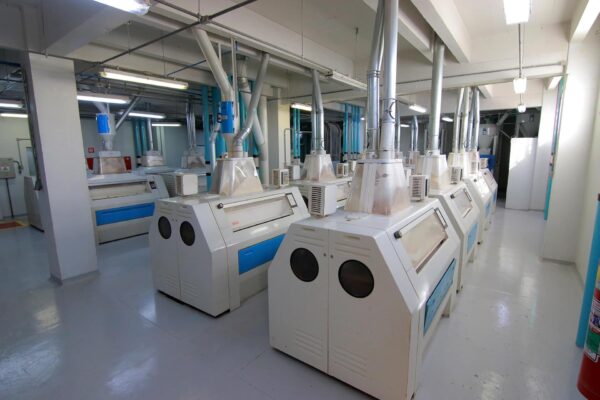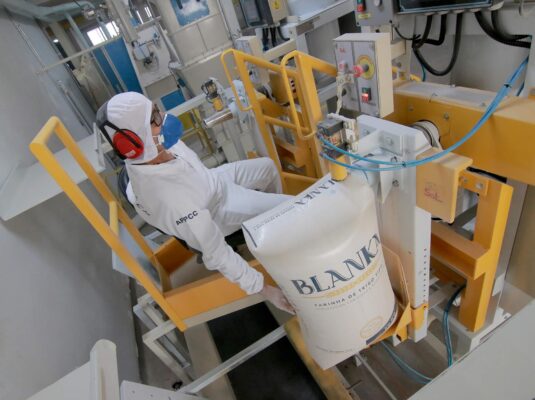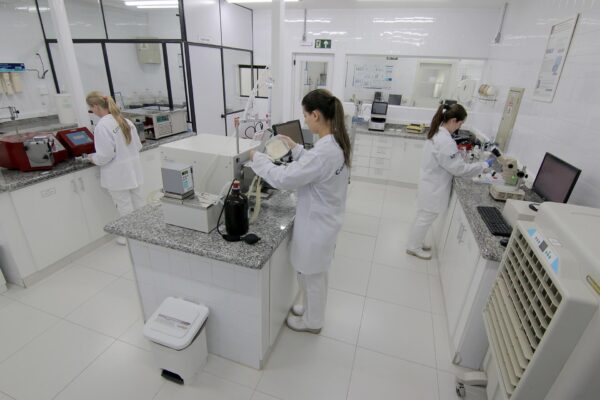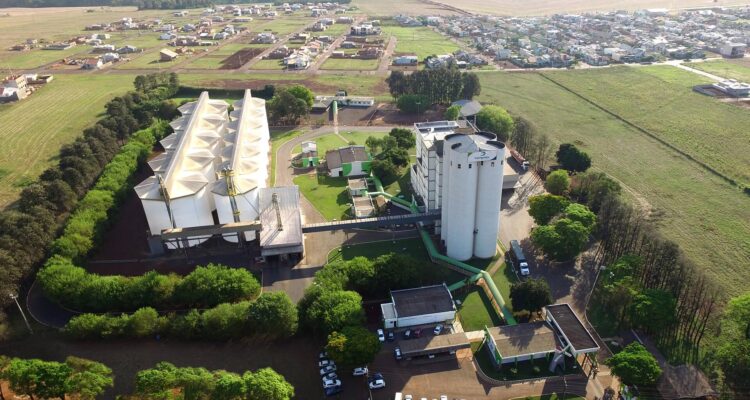



History
Located in the city of Palotina, in the state of Paraná, the Wheat Mill had its cornerstone laid on 12/3/1989 and began operations on 11/28/1992, with an initial industrial capacity of 200 tons/day of wheat, storage of 4,300 tons of flour and storage of 22,000 tons of grain. Approximately seven million dollars were invested in this first stage.
In June 1995, the “Tidying Up the House” program began, thus implementing the TQC (Total Quality Control) System.
The conquest of the market and the growth in sales motivated the doubling of the industry in 1997, increasing its industrialization capacity to 400 tons/day, flour storage to 800 tons and grain storage to 50,000 tons, becoming the 3rd Wheat Mill in Paraná in installed capacity. Four and a half million dollars were invested in this expansion. In 2021, a new expansion of the installed capacity to 500 tons/day and flour storage capacity to 1,200 tons and bran 400 tons.
In the same year, the “Routine Management” program was implemented, with the purpose of defining, standardizing and monitoring processes, based on the PDCA cycle (Plan/Do/Check/Act).
With the commitment to continuous improvement of its techniques, on 09/10/1997, the Cotriguaçu Wheat Mill laboratory was the first in this segment to be accredited by the Ministry of Agriculture, Livestock and Supply – MAPA – to perform Classification analyses of Products of Plant Origin (wheat), as well as provide quality control services for its own products and those of third parties.
In September 1998, a new challenge began, the process for ISO 9002 Certification, which was achieved in August 1999, through the certifying body DNV (Det Norske Veritas Ltda), thus becoming the first cooperative in the State of Paraná and one of the first in Brazil to achieve this certification.
Concerned not only with the quality of its processes, in November 2001, the implementation of the HACCP (Hazard Analysis and Critical Control Points) system began, the Brazilian version of the International Hazard Analysis Control Point – HACCP, which aims to guarantee food safety through prevention.
In February 2003, Moinho de Trigo was the first in Brazil to receive the Declaration of Implementation of the HACCP System from SENAI/PR. In the same year, in December, the ISO 9002 Certification was updated to ISO 9001:2000 by the same certifying body.
Sparing no effort in the search for continuous improvement, in December 2008, Cotriguaçu Wheat Mill achieved ISO 22000 Certification – Food Safety Management System. And in June 2021, it migrated to FSSC 22000 – Food Safety Management System internationally recognized by GFSI – Global Food Safety Initiative.
These certifications (ISO 9001 and FSSC 22000) place the company in the national spotlight in the wheat flour production market, guaranteeing greater security to its customers that they are purchasing safe, high-quality products.
In this way, Cotriguaçu’s Wheat Mill demonstrates its ability to control hazards in all phases of the production chain, from planting to the industrialization of its products, and ensures the management of all processes that influence food production.
In line with these achievements, the Mill maintains programs such as: PGE – Company Gymnastics Program; Study Incentive; Profit Sharing; Training, among others, seeking to maintain a standard of quality of life in the company. It also works with the MIP Grãos Program (Integrated Pest Management), in partnership with EMBRAPA TRIGO.
The laboratory has high-tech equipment and qualified professionals, constantly seeking innovations, with the aim of not only meeting the requirements of current legislation, but also, precisely and effectively, the specifications of its clients.
The product is sold in packages of 5 kg, 25 kg, 50 kg, 1,250 kg (Big Bag) and also in tipping silo load (tank). It mainly serves the southern and southeastern regions. As for wheat bran, the largest volume of production is consumed by the cooperatives affiliated with their feed industries.
